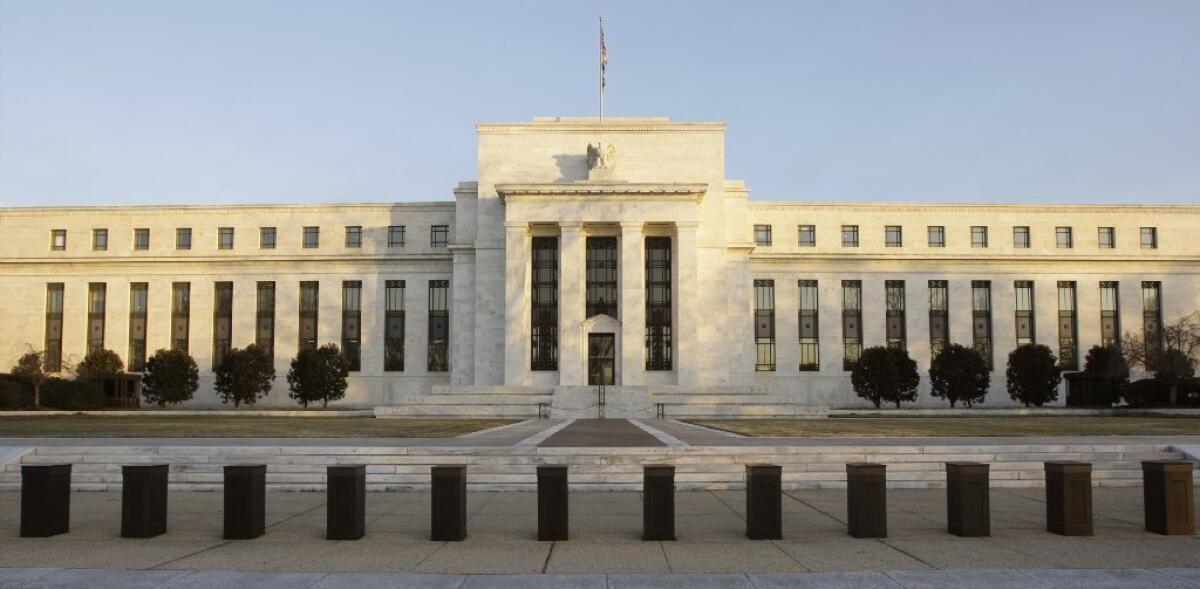Judge rejects Fed’s cap on debit-card fees as too easy on banks

A Federal Reserve cap on fees charged for processing debit-card transactions has been tossed out by a federal judge in Washington, who agreed with retailers that Fed went too easy on big banks in 2011 when it set the limit.
The ruling Wednesday is the latest twist in a bitter battle between retailers and banks over fees that most consumers are unaware of -- but are charged to merchants each time a customer swipes a debit card at a check-out counter.
Retailers cheered the decision by U.S. District Judge Richard Leon and banks decried it. The Fed didn’t disclose whether it would appeal the ruling, saying only: “We are reviewing the judge’s opinion.”
Leon held off putting his ruling into effect pending a hearing Aug. 14, but left little doubt where he stood in the dispute.
“The Court concludes that the [Federal Reserve] Board has clearly disregarded Congress’ statutory intent by inappropriately inflating all debit card transaction fees by billions of dollars,” Leon wrote.
Quiz: Do U.S. corporations pay too much in taxes?
The dispute stems from an amendment to the 2010 Dodd-Frank financial reform law, sponsored by Sen. Richard Durbin (D-Ill.), which required the Fed to set the so-called interchange fees at a level reflecting the actual processing costs.
The Fed’s staff recommended cutting the fee from 44 cents per transaction on average to just 12 cents. But after heated protests from the financial industry, the Fed in June 2011 set a cap of 21 cents per transaction. It has been held at that level since October 2011.
Groups representing retailers, who had asked the judge to invalidate the Fed’s 21-cent cap, said Leon’s decision was a boon for consumers, since merchants pass along debit processing fees invisibly by raising prices for purchases however they are made.
The National Retail Federation, a plaintiff in the lawsuit, said the central bank had disregarded Congress’ requirement that fees be “proportional” to debit transaction costs. The Fed “grossly misapplied the swipe fee law,” Mallory Duncan, senior vice president of the trade association, said in a statement.
The Merchants Payment Coalition said the ruling would put a stop to “unconscionable price gouging,” The Food Marketing Institute, which represents groceries and pharmacies, said it “will ultimately result in lower costs at the checkout line by billions.”
But Frank Keating, chief executive of the American Bankers Assn., said the ruling was flawed because it didn’t account for certain transactions costs. In a statement, he said Leon’s decision “will harm banks of all sizes and make it more difficult for institutions to serve their customers.”
The Fed should “pursue all legal means to mitigate the harm this decision will cause,” Keating said. “This result must be reversed.”
Small banks and credit unions, which had been exempted from the fee cap, roundly criticized the decision as well.
“As it stands, the Court’s ruling will have an irreparable, detrimental impact on credit unions’ ability to ensure their members receive the services they need,” the National Assn. of Federal Credit Unions said.
ALSO:
Fed proposes rule to slash debit card “swipe fees”
Fed raises its cap on debit fees, benefiting large banks
Invisible “swipe fees” for debit cards may still cost consumers
More to Read
Inside the business of entertainment
The Wide Shot brings you news, analysis and insights on everything from streaming wars to production — and what it all means for the future.
You may occasionally receive promotional content from the Los Angeles Times.











